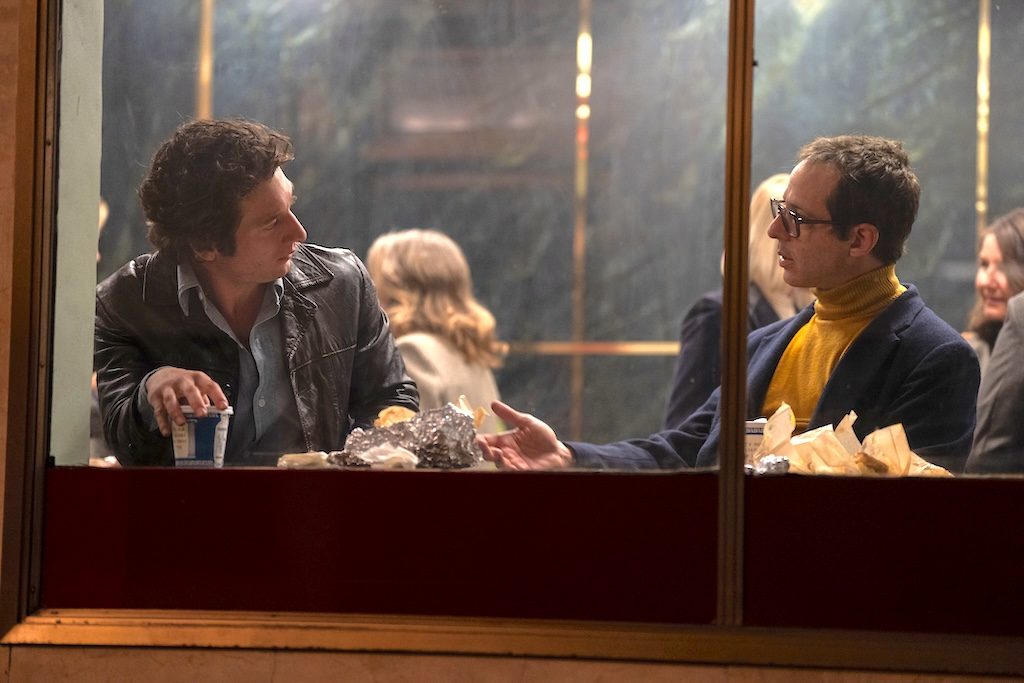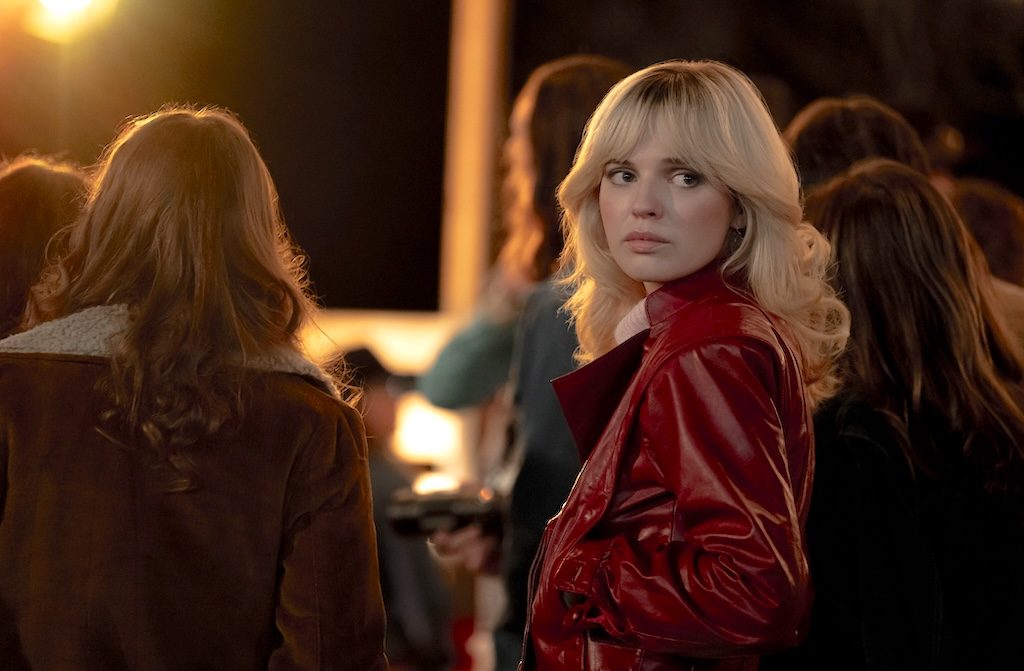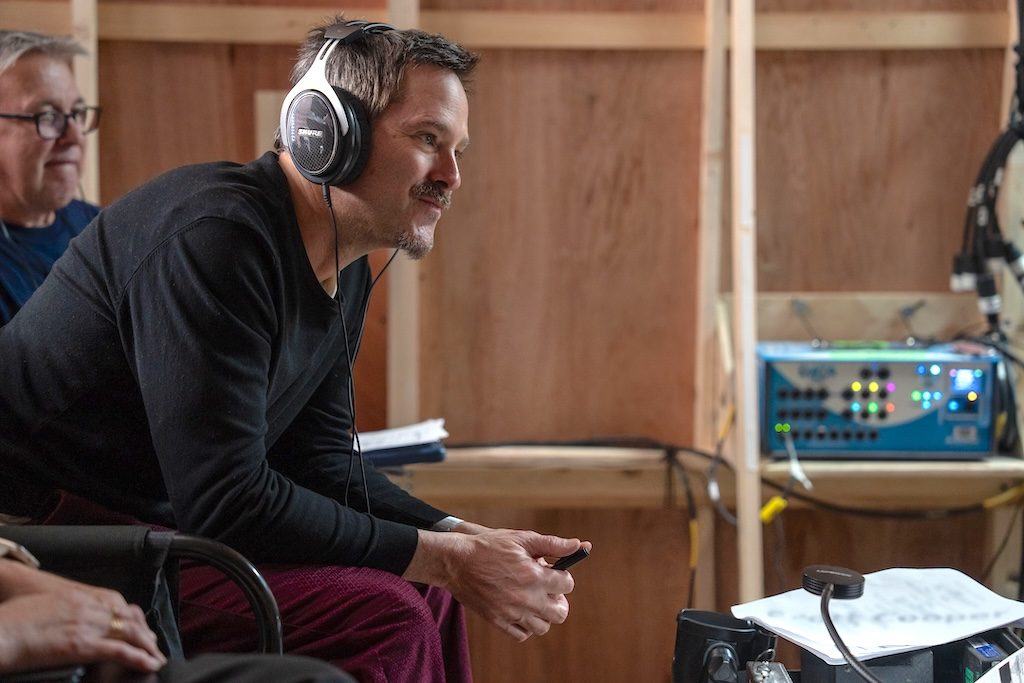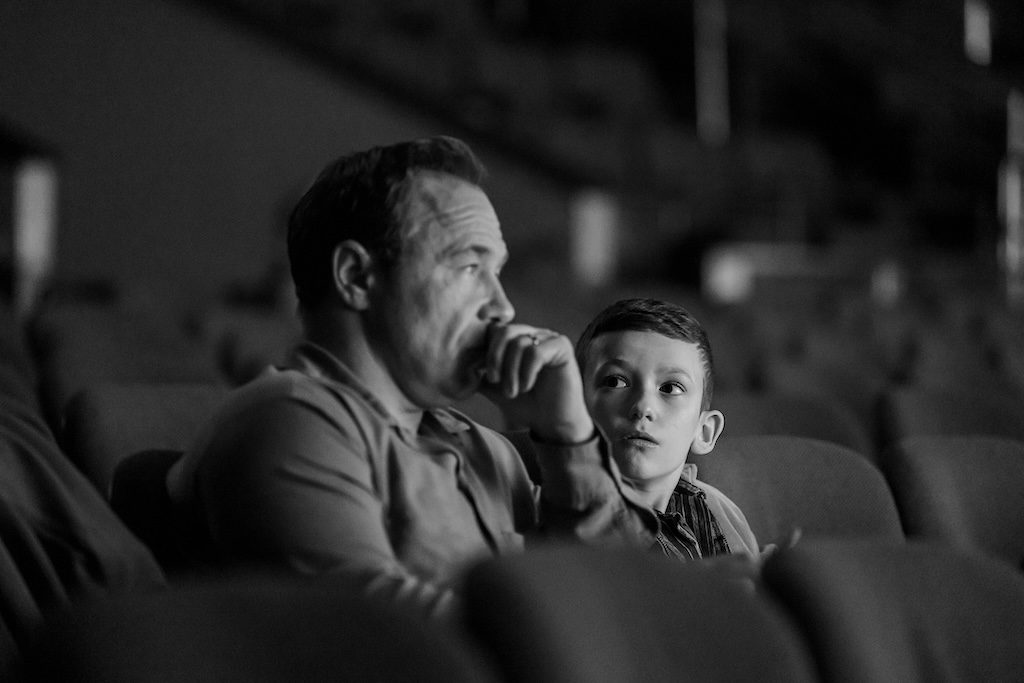Springsteen: Deliver Me From Nowhere. Scott Cooper, Jeremy Allen White, Jeremy Strong, Odessa Young and Francine Maisler Discuss the Creative Journey Behind the Film

When Bruce Springsteen released Nebraska in 1982, he was already an icon of American rock. His previous albums, especially Born to Run and The River, had catapulted him to worldwide fame, filling stadiums with their anthemic, fists in the air sound and American blue-collar lyrics. But Nebraska was different. Gone were the roaring guitars and the driving force of the E Street Band.
Instead, Springsteen delivered twelve stripped-down, unpolished songs — just his voice, an acoustic guitar, a harmonica — complete with scratches, fingering noises, and other musical imperfections. Naked, raw, and emotionally honest. There were strict caveats — the masters had to be recorded from his own recordings, no press, no tour, and no photo of Bruce on the album cover. Prevailing wisdom was convinced it was artistic suicide (or insanity), but Springsteen stood firm. The music had to speak for itself. “It doesn’t need any explanation. I wouldn’t even know how to,” Bruce professes. This wasn’t an act of defiance or artistic pomposity. It was an act of a musician wanting to rid himself of a heavy emotional burden. Bruce knew his audience would understand. And they did.
This sparse, haunting record was born in Springsteen’s New Jersey bedroom, captured on a simple four-track cassette recorder. At the time, Springsteen was wrestling with his own fame and a growing sense of personal and creative isolation. His struggles with depression were well-documented. Music was his catharsis. His therapy. His savior.
He later described his headspace as “very solitary,” marked by insomnia and an inner reckoning with the darker corners of his life and America. The songs of Nebraska are filled with murderers, fugitives, and working-class men facing impossible choices — a far cry from the romantic dreamers and rebels of his earlier work.
Springsteen’s willingness to set aside commercial expectations and expose his rawest emotions made Nebraska a cult classic. Its legacy endures, not only because of its artistic bravery, but because it was a career turning point — an artist willing to risk everything to tell the truth, no matter how bleak or unflattering. That spirit of searching for his truest self and meaning underscores the film Deliver Me From Nowhere, which explores the making of this seminal album and its lasting impact.
The key creatives behind the film share their intimate thoughts in a panel discussion. For them, Bruce Springsteen was never just the subject of a film; he profoundly impacted their lives.

Bruce Springsteen (Jeremy Allen White) and Jon Landau (Jeremy Strong) Photo by Macall Polay/ 20th Century Studios.
The Roots of Inspiration
The journey of Deliver Me From Nowhere began long before cameras rolled. For writer/ director Scott Cooper, Nebraska was more than just an album — it was a lifeline. “My father introduced me to Springsteen’s Nebraska, and it became a kind of soundtrack to my restless teenage years. I even wrote two films while listening to it,” Cooper recalled. The album’s emotional truth mirrored Cooper’s own search for meaning. “My father passed away the day before we started shooting, so in a way, his spirit was with me throughout this process. Dedicating the film to him felt right.”
The cast’s connections to Springsteen’s music are equally impactful. Jeremy Allen White (who portrays Bruce), who grew up in Brooklyn in the 1990s, described Springsteen as ever-present. “I admired Bruce, knew all the radio hits, but it wasn’t until this project that I realized the depth of his artistry. I was a casual fan who became a true believer.”
For Jeremy Strong, who plays Springsteen’s manager Jon Landau, Nebraska was a college revelation. “There’s a starkness and authenticity to it that felt like a beacon. Like a lot of people, I misunderstood Bruce at first — especially with how ‘Born in the USA’ was misinterpreted. This project let me see the real depth of his work.”
Odessa Young, the film’s lead actress who plays Bruce’s love interest Faye Romano, grew up in a home where Springsteen’s music was almost a family member. “My 15th and 16th birthdays were at his concerts, and my 16th birthday cake had his face on it! I was raised in a Springsteen home — his music was everywhere.”
Casting director Francine Maisler, another New Jersey native, echoed the sentiment. “Bruce is part of my DNA. When Scott called, I didn’t need to read the script — I just said yes. Seeing Bruce at the Stone Pony, I was completely starstruck. He’s always been an icon to me.”
Why Nebraska, Why Now?
Focusing on Nebraska was a deliberate and deeply personal choice. Scott Cooper explained, “It’s his most personal and enduring record. In Bruce’s own autobiography, the chapter about Nebraska is just a page and a half. He told me it was too painful to revisit. At 75, Bruce decided if he was ever going to make a film about his life, it should be about this period.”
Springsteen’s trust in Cooper was deep. “He told me, ‘Scott, the truth about yourself isn’t always pretty. I want you to tell the truth about me.’ He wanted the film to be minimalist, stark, without gloss or spectacle — just like the album. That became our guiding principle.”

Faye Romano (Odessa Young) Photo by Macall Polay/ 20th Century Studios.
A Collaboration with Bruce Springsteen
A defining quality of the film is the direct involvement of Bruce Springsteen himself. Cooper described, “You can read all the biographies and watch interviews, but spending time with Bruce was crucial. Warren Zanes’s book (from which the screenplay was adapted) provided the foundation, but it was Bruce’s willingness to be vulnerable that gave the script its heart.”
Odessa Young added, “Scott and Bruce had many conversations about who my character, Faye, needed to be. She’s a composite, inspired by different people in Bruce’s life, but Scott’s script gave me everything I needed.”
Having Springsteen and his longtime manager Jon Landau on set was both inspiring and intimidating. Jeremy Allen White admitted, “I was nervous at first. I worried Bruce might be critiquing my performance. But he was there purely to support us. He’d send me encouraging messages after set visits.”
Jeremy Strong concurred: “For an actor, having the real-life subject on set can be daunting. But Bruce and John’s love for film made them collaborators, not overseers. Bruce once told me that seeing De Niro’s work inspired the way he approaches music. That level of rigor and commitment was something we all tried to embody.”
Building a Cast, Seeking Truth
Authenticity shaped every aspect of the film, especially casting. Francine Maisler described how they found their young Bruce: “We put out a casting call and found a boy from New Jersey who’d never acted. Scott did exercises with him that focused on honest, nonverbal reactions. That’s what makes Scott unique — he wants genuine behavior, not performance.”
Cooper explained, “I try to strip away as much dialogue as possible. I want scenes to be about behavior, not words. That’s as true for a child actor as it is for someone like Jeff Bridges or Robert Duvall.”
Strong recalled a moment that illustrated Cooper’s approach: “For a key scene, I wanted to play a song for Bruce’s character. I texted Bruce and John for suggestions; Bruce sent me a Sam Cooke track. Scott let me try it on set without question — this trust defines his style, mirroring Bruce’s own search for artistic truth.”

Scott Cooper. Photo by Macall Polay/ 20th Century Studios.
The Dynamics of Collaboration
The panelists agreed that Cooper’s trusting atmosphere on set fostered creativity. Odessa Young said, “Scott lets us take risks. He trusts us. That’s rare.”
Maisler reflected, “I’ve worked on many films, but I’m so proud to have my name on this one. Jeremy Allen White is the only actor who’s ever thanked me in an award speech. Odessa blew us away in her audition, and Jeremy Strong — he’s always had a different, magnetic presence. These three are the next generation of great actors.”
The Legacy of Nebraska and the Artistic Process
Deliver Me From Nowhere is more than an adaptation — it’s an ode on Springsteen’s own artistic process. As Cooper explained, “Bruce made Nebraska as a kind of unflinching search for truth. We wanted to honor that with the film.”
The collaboration between filmmakers and the subject himself became a model for creative integrity. Jeremy Allen White observed, “Having Bruce’s blessing gave us courage. We weren’t just interpreting a legend — we were sharing his vulnerability.”

Douglas Dutch Springsteen (Stephen Graham) and Young Bruce (Matthew Anthony Pellicano Jr.) Photo by Macall Polay/ 20th Century Studios.
A Universal Story of Loss and Hope
At its core, Deliver Me From Nowhere is a story about searching for meaning and hope in the face of loss and uncertainty — a theme that resonates with both Springsteen’s music and Cooper’s own journey.
Odessa Young reflected, “Playing Faye — a character based on fragments of real people — was liberating. It reminded me that great storytelling is about capturing the emotional truth, not just the facts.”
The ensemble cast, including both familiar names and newcomers, brought fresh energy to the screen. Maisler said, “We have Stephen Graham as Bruce’s sad alcoholic father, and others you’ll recognize, but also new faces who give the film its rawness.”
Final Reflections: The Meaning of “My Father’s House”
To conclude, the participants were asked what “My Father’s House”— a pivotal song and theme — meant to each of them.
Scott Cooper said, “For me, it’s about searching for connection — with our past, with our families, with ourselves. Making this film was a way of coming home.”
Jeremy Allen White added, “It’s about longing and redemption — the possibility that no matter how far you wander, you can always find your way back.”
Jeremy Strong reflected, “It’s about confronting the truth, even when it’s uncomfortable. That’s what Bruce did with Nebraska, and what we tried to do with the film.”
Odessa Young concluded, “For me, it’s about hope. Even in the darkest stories, there’s a glimmer of light.”
Join the Discussion!
Related Articles
Browse our Videos for Sale
[woocommerce_products_carousel_all_in_one template="compact.css" all_items="88" show_only="id" products="" ordering="random" categories="115" tags="" show_title="false" show_description="false" allow_shortcodes="false" show_price="false" show_category="false" show_tags="false" show_add_to_cart_button="false" show_more_button="false" show_more_items_button="false" show_featured_image="true" image_source="thumbnail" image_height="100" image_width="100" items_to_show_mobiles="3" items_to_show_tablets="6" items_to_show="6" slide_by="1" margin="0" loop="true" stop_on_hover="true" auto_play="true" auto_play_timeout="1200" auto_play_speed="1600" nav="false" nav_speed="800" dots="false" dots_speed="800" lazy_load="false" mouse_drag="true" mouse_wheel="true" touch_drag="true" easing="linear" auto_height="true"]










You must be logged in to post a comment Login